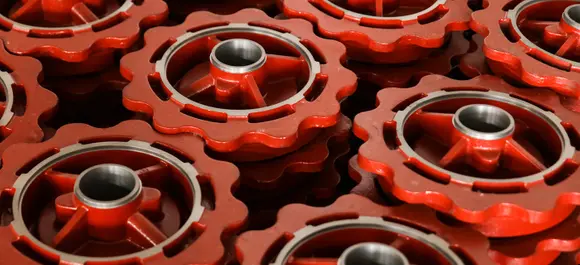Mobile:+86-311-808-126-83
Email:info@ydcastings.com
Metal Impeller Design and Manufacturing Techniques for Enhanced Performance and Efficiency
The Importance of Metal Impellers in Modern Engineering
In the domain of mechanical engineering, the impeller is a crucial component found in various applications ranging from pumps to turbines and compressors. Among the different materials used to manufacture impellers, metal impellers stand out due to their unique properties and advantages. This article explores the significance of metal impellers, delving into their design, materials, manufacturing processes, and applications.
Design and Functionality
Metal impellers are designed to convert rotational energy into fluid motion, thus playing a vital role in enhancing the efficiency of fluid systems. The design of an impeller can significantly influence the performance of the machinery it supports. Engineers must consider various factors such as the flow rate, the type of fluid being moved, and the pressure required to achieve optimal performance. The geometry of the impeller, including the number of blades, the blade shape, and the overall diameter, is crucial for ensuring effective fluid dynamics.
Materials Used
Metal impellers are often made from a variety of materials, each chosen for its specific properties. Common metals used include stainless steel, aluminum, bronze, and special alloys. Stainless steel is widely favored for its excellent corrosion resistance and mechanical strength, making it suitable for applications in harsh environments. Aluminum impellers, on the other hand, are lightweight and have good thermal conductivity, which makes them ideal for applications where weight reduction is important. Bronze impellers exhibit excellent wear resistance and are often used in marine applications due to their ability to withstand seawater corrosion.
Manufacturing Processes
The manufacturing of metal impellers involves several processes, including casting, forging, and machining
. Each technique has its advantages and is selected based on factors such as the required precision, production volume, and material properties.metal impeller

Casting is a common method where molten metal is poured into a mold to create the desired impeller shape. This technique allows for complex geometries but may require post-processing to achieve the desired surface finish and dimensional accuracy.
Forging is another method that enhances the mechanical properties of the impeller by improving its microstructure. This process involves shaping the metal using compressive forces and is particularly beneficial for high-strength applications.
Machining is often employed to refine the final shape of the impeller, ensuring tight tolerances and smooth surfaces. Advanced machining techniques like CNC (Computer Numerical Control) machining are increasingly used to achieve high precision in impeller production.
Applications of Metal Impellers
Metal impellers are ubiquitous across various industries. In the aerospace sector, they are used in jet engines and turbochargers to optimize airflow and enhance engine performance. Automotive applications see impellers in water pumps and fuel pumps, where they are critical for ensuring efficient engine cooling and fuel delivery.
In the water treatment industry, metal impellers play a key role in pumps that transport water and wastewater. Their durability makes them suitable for handling abrasive materials and high-pressure situations. In power generation, impellers are integral to turbines that convert fluid energy into electrical energy, whether in hydroelectric plants or gas turbines.
Conclusion
The significance of metal impellers cannot be overstated in modern engineering. Their unique combination of strength, durability, and versatility makes them indispensable in a wide array of applications. As technology continues to advance, the design and manufacturing processes of metal impellers are likely to evolve further, leading to improved performance and efficiency. For engineers and industry professionals, understanding the intricate details surrounding metal impellers is essential for enhancing the functionality and reliability of the systems they design and maintain. In the ever-evolving landscape of engineering, metal impellers will continue to play a pivotal role in driving innovation and progress.
-
Why Should You Invest in Superior Pump Castings for Your Equipment?NewsJun.09,2025
-
Unlock Performance Potential with Stainless Impellers and Aluminum End CapsNewsJun.09,2025
-
Revolutionize Your Machinery with Superior Cast Iron and Aluminum ComponentsNewsJun.09,2025
-
Revolutionize Fluid Dynamics with Premium Pump ComponentsNewsJun.09,2025
-
Optimizing Industrial Systems with Essential Valve ComponentsNewsJun.09,2025
-
Elevate Grid Efficiency with High-Precision Power CastingsNewsJun.09,2025











